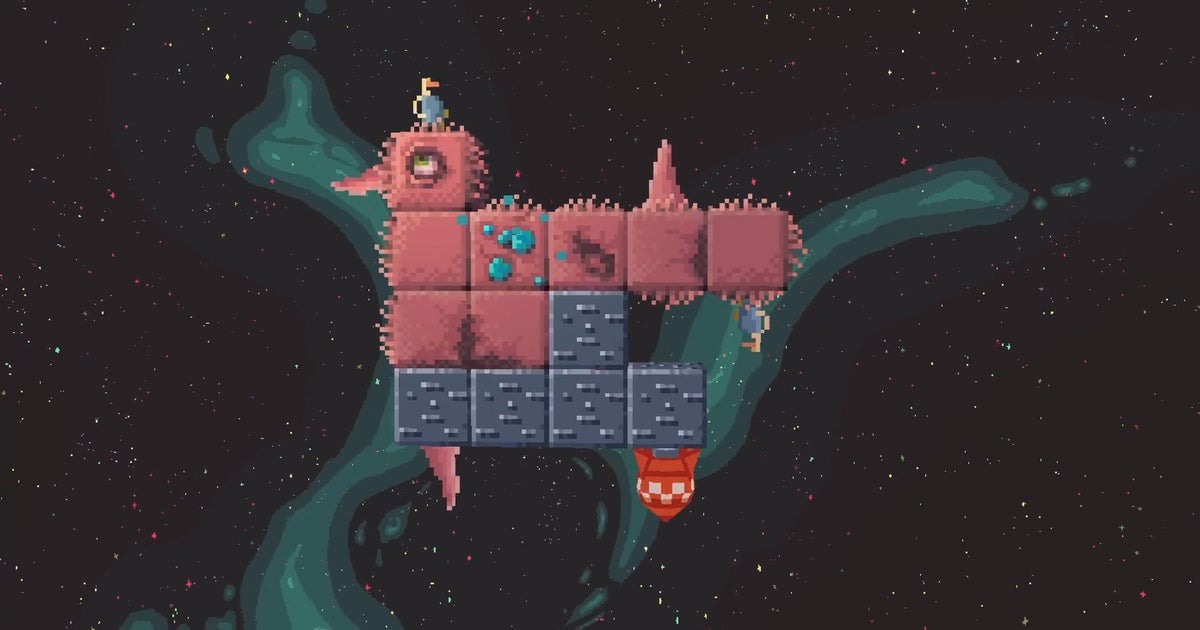Indie Games: Discovering the World of Independent Developers
The world of video games has witnessed a remarkable transformation in recent years, with the emergence of indie games capturing the imagination of gamers and developers alike. In this article, we delve into the realm of indie games, exploring their significance, the creative process behind them, the challenges independent developers face, and the impact they’ve had on the gaming industry.
The Rise of Indie Games
The meteoric rise of indie games is a testament to the ingenuity and passion of independent developers. As the gaming industry continues to evolve, indie games have carved out a unique niche, offering fresh and innovative experiences.
Why Indie Games Matter
Indie games matter because they breathe life into the gaming landscape. They challenge the conventions of mainstream gaming, providing a platform for creativity and experimentation that enriches the medium.
Defining Indie

What Are Indie Games?
Indie games, short for independent games, are creations developed by small teams or even solo developers without the financial backing of major publishers. These games are characterized by their autonomy and distinct artistic vision.
Characteristics of Independent Games
Indie games are known for their diversity in gameplay, art style, and storytelling. They often prioritize unique and immersive experiences over profit, making them a treasure trove for gamers seeking something beyond the ordinary.
A Brief History of Indie Games

Early Pioneers in Indie Game Development
The roots of indie games can be traced back to the early days of computer gaming, where passionate individuals and small groups began crafting games on a personal level. Notable examples include “Spacewar!” and “Rogue,” which laid the foundation for the indie movement.
Milestones in the Indie Game Industry
Over the years, several milestones have shaped the indie game industry, such as the release of “Braid” and the advent of digital distribution platforms like Steam. These events have allowed indie developers to gain recognition and reach wider audiences.
The Creative Process
From Concept to Gameplay
The creative process in indie game development is a fascinating journey that starts with a spark of inspiration and leads to the realization of a game’s core mechanics, story, and world. Independent developers have the freedom to explore uncharted territories and push the boundaries of what’s possible in gaming.
Independent Game Development Teams
Indie game development teams, while smaller in size compared to big studios, are composed of highly skilled individuals who contribute their expertise in various areas, such as coding, design, art, and music. The synergy within these teams is essential to bring their visions to life.
Funding and Budgeting

Crowdfunding for Indie
Many indie games have successfully harnessed the power of crowdfunding platforms like Kickstarter to secure the financial support needed for development. This method allows developers to maintain creative control and connect directly with their audience.
Making the Most of Limited Resources
Independent developers often work with tight budgets, forcing them to be resourceful and innovative in their approach. This constraint has led to ingenious solutions and innovative game designs.
Indie Game Genres
Exploring the Diverse Landscape
Indie games explore a vast array of genres, from platformers to visual novels, and from puzzle games to roguelikes. This diversity ensures that there’s an indie game for every gamer’s preference.
Popular Indie Game Genres
Some indie game genres have gained immense popularity, including the metroidvania, pixel art, and narrative-driven adventure games. These genres have become synonymous with the indie game scene.
Indie Game Development Tools

Game Engines and Software
Indie developers have access to an arsenal of game engines and development software, enabling them to create stunning and technically impressive games. Tools like Unity and Unreal Engine have democratized game development.
Art and Sound Resources for Indie Developers
In the realm of indie games, art and sound design are key components. Many indie developers collaborate with talented artists and composers to create visually striking and immersive game worlds.
Challenges Faced by Independent Developers
Marketing and Visibility
One of the most significant challenges indie developers face is gaining visibility in a crowded market. Navigating the complex world of game marketing is a skill that can make or break a project.
Navigating the Competitive Market
The indie game industry is fiercely competitive. Developers must stay resilient, adapt to market trends, and find innovative ways to stand out among the sea of new releases.
Success Stories
Notable Indie Game Successes
The world of indie games has witnessed numerous rags-to-riches stories, with games like “Hollow Knight,” “Undertale,” and “Celeste” gaining critical acclaim and commercial success.
What We Can Learn from Their Journeys
The success of indie games offers valuable lessons in creativity, determination, and the power of community support. Aspiring developers can draw inspiration from these stories.
The Impact of Indie Games
Influencing the Mainstream Industry
Indie games have had a profound impact on the gaming industry as a whole. Many game mechanics, art styles, and storytelling techniques that originated in indie games have found their way into mainstream titles.
Cultural and Artistic Significance
Beyond the gaming industry, indie games have left an indelible mark on popular culture, exploring themes and narratives that are often overlooked in mainstream media.
Supporting Indie Developers

How Gamers Can Contribute
Gamers can play a vital role in supporting indie developers by spreading the word about indie titles, participating in crowdfunding campaigns, and engaging with the development process through early access and feedback.
Promoting the Indie Game Ecosystem
Supporting independent developers not only ensures the continuation of innovative gaming experiences but also fosters a sense of community and artistic freedom within the industry.
The Future of Indie Games
Trends and Predictions
The future of indie games is a promising one, with trends such as procedural generation, immersive storytelling, and augmented reality poised to reshape the landscape.
Exciting Developments on the Horizon
Upcoming indie titles, some of which have been in development for years, promise to push the boundaries of what indie games can achieve, offering fresh experiences for players to enjoy.
Conclusion:
In the ever-evolving landscape of the gaming industry, indie games have firmly established themselves as a beacon of creativity and innovation. The allure of indie games is not just a fleeting trend but a steadfast and enduring force that captivates gamers and developers alike. As these games continue to evolve, diversify, and push the boundaries of what is possible, they represent a vibrant and vital aspect of the gaming world, shaping the industry in numerous ways.
The Art of Indie Evolution
One of the most enchanting aspects of indie games is their capacity for reinvention. Indie developers are known for their audacious spirit, constantly seeking new horizons and redefining the very essence of gaming. This relentless pursuit of innovation and the unshackled creativity that accompanies it are what make indie games eternally appealing.
Indie games have a unique ability to surprise and captivate players, as developers are not confined by the expectations and formulas that often limit larger studios. These games can explore unconventional narratives, unconventional gameplay mechanics, and novel visual styles that challenge the status quo. It’s in this endless exploration of the creative unknown that indie games find their enduring allure.
A Safe Haven for Artistic Expression
Indie games have become a sanctuary for artistic expression in an industry sometimes dominated by commercial interests. The freedom that independent developers have to explore niche themes, experimental storytelling, and unique art styles has allowed them to create games that resonate deeply with players. Whether it’s a game exploring the intricacies of mental health, delving into the human condition, or providing a profoundly emotional experience, indie games give voice to topics that might otherwise remain unexplored.
These games offer a window into the souls of the developers, who pour their passion, beliefs, and creativity into their projects. Players, in turn, find themselves connecting with these games on a personal level, forming an emotional bond that transcends the screen. It’s this authenticity and artistic integrity that continue to draw players to the world of indie gaming, seeking not just entertainment but profound experiences that leave a lasting impact.
An Industry of Inclusivity
Indie games are a testament to the inclusivity and diversity that make the gaming industry richer and more vibrant. Independent developers hail from all corners of the globe, representing a multitude of cultures, backgrounds, and experiences. This diversity of perspectives is mirrored in the games they create, offering a wide range of stories and gameplay experiences that cater to a global audience.
Indie games also serve as a platform for underrepresented voices, empowering marginalized communities to tell their stories and share their unique experiences. This inclusivity, both in development and in the games themselves, contributes to the industry’s growth and the fostering of a more welcoming gaming community.
The Power of CommunityThe allure of indie games extends beyond the games themselves; it encompasses the passionate and dedicated community that surrounds them. Indie game enthusiasts are not mere consumers but active participants in the creative process. From Kickstarter campaigns to early access programs, the relationship between developers and players is often more personal and direct, fostering a sense of collaboration and shared ownership.
Gamers who engage with indie titles become part of the journey, offering feedback, suggestions, and moral support. In this symbiotic relationship, the games evolve, benefiting from the collective wisdom and desires of the community. This level of involvement makes every successful indie game a triumph not just for the developers but for the entire community that believed in and supported it.
A Future of Boundless PotentialAs we look to the future, the allure of indie games is set to endure and flourish. The continued evolution of technology, the rise of virtual reality, and new forms of interactive storytelling open up exciting possibilities for indie developers. With trends like procedural generation, immersive storytelling, and augmented reality on the horizon, indie games are poised to remain at the forefront of innovation.
Upcoming titles, some of which have been in development for years, promise to challenge our preconceptions of what games can be. The journey of indie games, which began as a rebellion against the constraints of the mainstream industry, has matured into a movement that is redefining the gaming landscape, encouraging exploration and artistic expression, and captivating gamers and developers alike.
In a world where creative freedom, inclusivity, and the power of community reign supreme, the allure of indie games shines brightly as a beacon of inspiration, constantly beckoning us to discover the next extraordinary journey that independent developers have in store.
FAQ: Indie Games – Discovering the World of Independent Developers
What are indie games, and how do they differ from mainstream games?
Indie games, short for independent games, are creations developed by small teams or solo developers without major financial backing. They often prioritize unique, creative, and innovative experiences over profit, distinguishing them from mainstream games.
Who are the early pioneers in indie game development?
Early pioneers in indie game development include individuals and small teams who started crafting games on a personal level. Notable examples include Richard Garriott’s “Akalabeth” and Michael Toy’s “Rogue.”
How have indie games shaped the gaming industry over the years?
Indie games have influenced the gaming industry by introducing unique gameplay mechanics, art styles, and storytelling techniques. They’ve also inspired mainstream developers to take creative risks.
What is the creative process behind indie game development?
The creative process for indie games begins with a concept and evolves into gameplay, often involving small development teams that work collaboratively to bring their artistic vision to life.
How do indie developers fund their projects?
Indie developers fund their projects through various means, including personal savings, crowdfunding platforms like Kickstarter, grants, and sometimes even loans or investments.
What are some popular indie game genres?
Indie games cover a wide range of genres, including platformers, roguelikes, puzzle games, narrative-driven adventures, and metroidvanias, to name a few.
What challenges do independent developers face in the gaming industry?
Independent developers face challenges in marketing, visibility, budget constraints, and navigating the highly competitive gaming market.
Can you name a few notable indie game success stories?
Notable indie game success stories include “Hollow Knight,” “Undertale,” “Celeste,” and “Hades,” which gained both critical acclaim and commercial success.
How do indie games influence the mainstream gaming industry?
Indie games have influenced the mainstream industry by introducing new mechanics and artistic styles that are adopted by larger studios, leading to innovative changes in mainstream games.
How can gamers contribute to supporting indie developers?
Gamers can support indie developers by purchasing their games, participating in crowdfunding campaigns, providing feedback, and promoting indie titles within their communities.
What are the major trends and predictions for the future of indie games?
Trends in indie games include procedural generation, immersive storytelling, and augmented reality, which are set to reshape the landscape. The future holds exciting developments for indie games.
Why do indie games hold cultural and artistic significance?
Indie games often explore themes and narratives that are unique, challenging, and thought-provoking, contributing to their cultural and artistic significance.
How do indie developers access the tools needed for game development?
Indie developers have access to a variety of game engines and development software, such as Unity and Unreal Engine, which have made game development more accessible.
What are some of the challenges associated with crowdfunding for indie games?
Crowdfunding for indie games can be challenging due to the need for effective marketing, transparency, and the pressure to meet backer expectations.
How have indie games impacted popular culture outside of the gaming world?
Indie games have expanded their influence into popular culture by exploring societal and emotional themes that resonate with a broader audience, leading to increased recognition.
Can you explain the impact of digital distribution platforms on the indie game industry?
Digital distribution platforms like Steam and itch.io have provided indie developers with easy access to global audiences, reducing the barriers to entry and amplifying their reach.
Are there any game development tools specific to indie developers?
Indie developers often use user-friendly and cost-effective tools, some of which are specifically designed to cater to the needs of smaller development teams.
What are the key factors that make indie games appealing to gamers?
Indie games offer fresh, unique, and personal experiences, often driven by the creativity and passion of independent developers, making them appealing to gamers seeking something different.
How do indie games promote artistic freedom in the gaming industry?
Indie games promote artistic freedom by enabling developers to take creative risks and explore themes that might not be viable in mainstream titles, enriching the gaming landscape.
What is the ongoing allure of indie games for gamers and developers?
The ongoing allure of indie games lies in their ability to surprise, innovate, and offer captivating experiences, fostering a vibrant, continuously evolving indie game ecosystem.
For those looking to delve deeper into the world of indie games, exploring the diverse genres and unique storytelling, our previous article on “Gaming Consoles: A History of Innovation and Fun” provides a comprehensive analysis of how indie developers craft immersive and compelling narratives within their games. Uncover the intricate web of storytelling techniques and character development that contribute to the richness of the indie gaming experience.
For a broader understanding of the impact of indie games on the gaming industry and popular culture, refer to the insightful article by IGN titled “How Indie Revolutionized the Gaming Landscape.” This piece offers a comprehensive exploration of how indie games have transformed the industry, influencing game design, storytelling, and cultural perspectives. Discover the profound impact of indie games on the broader gaming community and their role in shaping the future of interactive entertainment, explore more on Medium.




Uma resposta